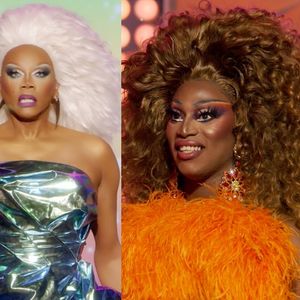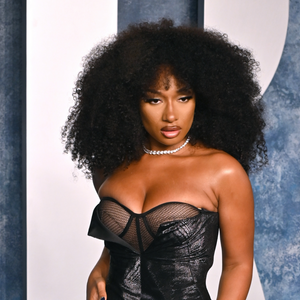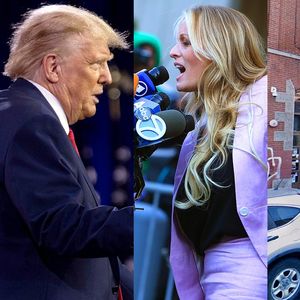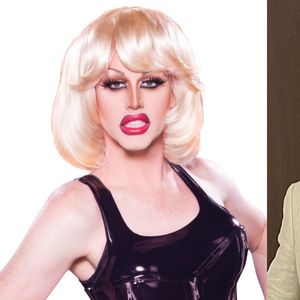CONTACTStaffCAREER OPPORTUNITIESADVERTISE WITH USPRIVACY POLICYPRIVACY PREFERENCESTERMS OF USELEGAL NOTICE
© 2024 Pride Publishing Inc.
All Rights reserved
All Rights reserved
By continuing to use our site, you agree to our Private Policy and Terms of Use.
Massachusetts's high court justices on Tuesday explored the evolving definition of marriage and past bans on interracial couples as they considered whether to make Massachusetts the first state in the country to legalize marriage rights for gay men and lesbians. As part of a spirited debate, the supreme judicial court judges grilled attorneys with rapid-fire questions about the justification for banning same-sex unions. They questioned whether the state's prohibition of marriage for same-sex couples is comparable to past bans on interracial unions, why gay couples can adopt children but not wed, and how the laws could be changed without sanctioning other unions, such as polygamy. "Why should we do something that virtually no other state has done?" Justice Judith A. Cowin asked attorney Mary Bonauto, who as civil rights project director for Boston-based Gay and Lesbian Advocates and Defenders represents seven same-sex couples seeking the right to marry. "Because it's the right thing to do," Bonauto responded. "The exclusion of these plaintiffs from marriage...discriminates on the invidious basis of sex and sexual orientation." Assistant attorney general Judith S. Yogman argued that "limiting marriage to opposite-sex couples furthers the state's interest in fostering the link between marriage and procreation and child-rearing"--a claim that several justices challenged. "How would prohibiting same-sex couples from getting married further that link?" Justice Roderick Ireland interjected before Yogman had finished her sentence. If procreation is the central purpose of marriage, Chief Justice Margaret Marshall said, could the state then order a couple who did not have children to divorce after 10 years? The case has attracted attention from across the country, with hundreds of organizations and individuals joining together to file a total of 26 briefs on behalf of both sides. Those filing briefs include the states of Utah, Nebraska, and South Dakota; several Catholic organizations; constitutional law professors; and civil rights organizations. Courts in Hawaii and Alaska approved marriage rights for same-sex couples, but their legislatures later approved constitutional amendments limiting marriage to opposite-sex couples. The Vermont legislature approved civil unions in 2000, giving domestic partnerships many of the benefits of marriage. The Massachusetts case was filed in 2001, when the plaintiffs were denied marriage licenses. A superior court judge dismissed their suit in May 2002, ruling that state law does not convey the right of marriage to gay couples. During Tuesday's hearing, Bonauto and--in particular--Yogman were interrupted repeatedly by members of the seven-judge panel, who probed the evolving definition of marriage and whether there is a rational, consistent reason for excluding gay couples from that rite. Bonauto argued there is not. "The plaintiffs stand before this court seeking nothing more and nothing less than the same respect under our laws and constitution as all other people enjoy--the same liberty right to marry the person of their choice and the same equal right to marry on the same terms applied to other people," she said. Carried to its extreme, however, Justice Martha Sosman contended, this same argument could justify the legalization of polygamy. "What would the difference be?" Sosman said. "These would be adults, consenting adults, saying this is the relationship we want. How are you different from that? What's your distinction?" Justice John Greaney compared this case to the landmark U.S. Supreme Court case Loving v. Virginia, which overturned laws against interracial marriage in 1967. "Wasn't Loving really based on the right of choice and that right not being encumbered or prohibited as a result of race?" Greaney asked Bonauto. "Isn't this the same thing?" Yogman argued that the case does not hinge on whether permitting gay couples to marry is good public policy. That, she said, is a question for the legislature. Instead, Yogman said, the question is whether the state has a rational basis for prohibiting gay marriage, which she says it does: "Because the legislature could conceivably believe that an optimal setting for child-rearing and procreation is a family where there are one parent of each sex." Greaney questioned, however, why gay couples are allowed to adopt children but not to marry. "How do you reconcile what to me is a paradox?" he asked Yogman. Boston College law professor Arthur Berney, who was involved in the Loving case, said the questioning seems encouraging for the plaintiffs. "I thought the court sounded a little bit like they might go for it," Berney said. Sarah Wunsch of the Massachusetts chapter of the American Civil Liberties Union said, however, that it is often very difficult to take an accurate reading of the court. "You can't predict anything," she said. Plaintiff Gloria Bailey, standing beside her partner of more than three decades, was more optimistic. "After 32 years, today we know the right thing is going to happen and we'll finally be able to get married," Bailey said, fighting back tears.
Want more breaking equality news & trending entertainment stories?
Check out our NEW 24/7 streaming service: the Advocate Channel!
Download the Advocate Channel App for your mobile phone and your favorite streaming device!
From our Sponsors
Most Popular
Here Are Our 2024 Election Predictions. Will They Come True?
November 07 2023 1:46 PM
Meet all 37 of the queer women in this season's WNBA
April 17 2024 11:24 AM
17 Celebs Who Are Out & Proud of Their Trans & Nonbinary Kids
November 30 2023 10:41 AM
Here Are the 15 Most LGBTQ-Friendly Cities in the U.S.
November 01 2023 5:09 PM
Which State Is the Queerest? These Are the States With the Most LGBTQ+ People
December 11 2023 10:00 AM
These 27 Senate Hearing Room Gay Sex Jokes Are Truly Exquisite
December 17 2023 3:33 PM
10 Cheeky and Homoerotic Photos From Bob Mizer's Nude Films
November 18 2023 10:05 PM
42 Flaming Hot Photos From 2024's Australian Firefighters Calendar
November 10 2023 6:08 PM
These Are the 5 States With the Smallest Percentage of LGBTQ+ People
December 13 2023 9:15 AM
Here are the 15 gayest travel destinations in the world: report
March 26 2024 9:23 AM
Watch Now: The Daily
Trending stories from our video partner Advocate Channel.
For more videos and shows go to advocatechannel.com.
Trending stories from our video partner Advocate Channel.
For more videos and shows go to advocatechannel.com.
Latest Stories
Biden will hammer Trump over abortion bans in Florida speech
April 23 2024 5:00 AM
Tristan Snell, who brought down Trump University, sees conviction in hush money case
April 22 2024 7:36 PM
Joe Biden admin marks Earth Day with major environmental initiatives
April 22 2024 4:18 PM
Texas Gov. Greg Abbott: 'We want to end' trans and gender nonconforming teachers
April 22 2024 4:13 PM
Nonbinary 17-year-old killed two years after being reported missing
April 22 2024 3:46 PM


















































































